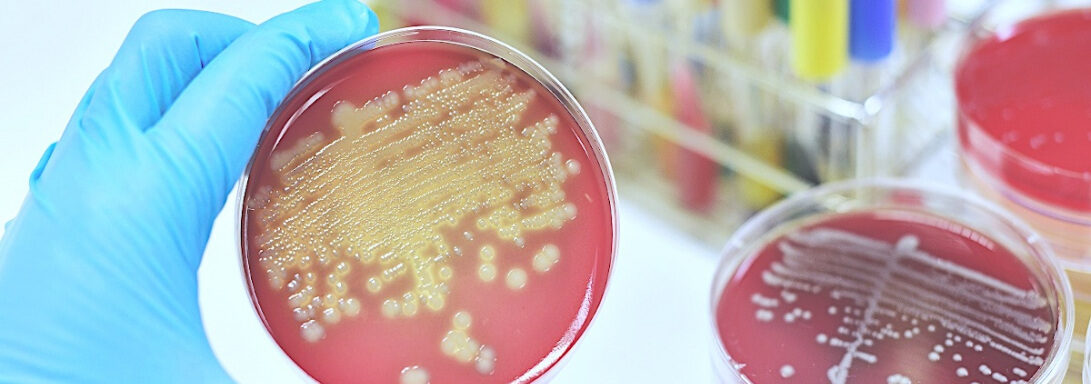Microarray Hybridisation Kit
The microarray hybridization kit enables the DNA-based detection of antibiotic resistance genes, virulence genes and pathogenicity markers of Staphylococcus aureus. This enables simple and quick assignment of unknown Staphylococcus aureus isolates to known strains. A result from an overnight bacterial culture can be obtained within hours.
Kit Application
The test was developed for use in infection research, hygiene and outbreak management, in epidemiology and in veterinary medicine. Established nucleic acid tests in a microarray-based format identify 336 DNA sequences for more than 170 clinically relevant markers for virulence, resistance and typing in just one approach. In contrast to Next Generation Sequencing, the relevant data are evaluated in a short time and made available inexpensively with less equipment expenses.
Simple Test Processing
The genomic DNA is extracted from an overnight bacterial culture and labeled with biotin-dUTP using a linear amplification protocol. The resulting biotin-labeled ssDNA is transferred to the microarray and hybridized with 336 DNA sequences for various genetic markers on DNA oligonucleotide microarrays. The target set consists of a variety of species markers, antibiotic resistance genes, virulence genes including exotoxin-encoded genes, genes encoding surface microbial components that recognize adhesive matrix molecules, various enzymes and other types of markers.
Detection
The detection of the positive signals is carried out automatically based on digital images of the microarrays by the INTER-ARRAY Genotyping readout system INTER-VISION. The overall pattern is automatically analyzed for the presence or absence of specific genes and compared with a database of strain profiles, which enables assignment to clonal complexes and strains. A result report is created automatically.

